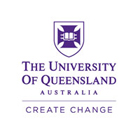Graduate Certificate in Biostatistics
Graduate Certificate in Biostatistics
Learn how to develop and apply statistical methods to different sets of health data so you can make important contributions to research and evidence-based practice. Biostatistics uses data to measure, understand and solve medical problems. This exciting and versatile discipline contributes to all fields of medical research and evidence-based healthcare….
Categories
COURSE DESCRIPTION
Learn how to develop and apply statistical methods to different sets of health data so you can make important contributions to research and evidence-based practice.
Biostatistics uses data to measure, understand and solve medical problems. This exciting and versatile discipline contributes to all fields of medical research and evidence-based healthcare. In this program, you’ll develop critical analysis expertise, interpretation skills and the ability to apply relevant research findings.
The Graduate Certificate in Biostatistics teaches the specialised application of statistics, including data collection, analysis and interpretation, to the field of health. This program is ideal if you’re interested in advancing knowledge in biomedicine, public health, or the life sciences. You’ll learn how to develop and apply statistical methods to different sets of health data, to make important contributions to research and evidence-based practice.
The Graduate Certificate in Biostatistics is a six month program that teaches core courses from the Master of Biostatistics course list. It’s designed for applicants who have completed an approved degree and at least one tertiary-level statistics course. You’ll complete 8 units of study with a course plan tailored to your academic background. All courses are designed to refine your understanding of biostatistical concepts and methods.
The program is enriched by the School of Public Health’s strong links with leading international agencies including Australian Aid, the World Bank and the World Health Organization.
Career possibilities
Postgraduate study can take you anywhere. Here are some of the careers you could be on your way to:
Biostatistician
Epidemiologist
Data technician
Bioinformatician
REQUIREMENTS
To be eligible for entry, you’ll need:
a bachelor’s degree (or equivalent) in a relevant discipline (see below)
You must have a grade point average (GPA) of 4.0 on a 7-point scale in your previous qualification.
Relevant disciplines for previous qualifications
Relevant disciplines include allied health, applied Science, behavioural and social sciences, biomedical sciences, biostatistics, counselling, dentistry and oral health, development studies, education, engineering, environmental health, exercise and sport science, food science, health economics, health management, mathematics, medicine and medical sciences, nursing, nutrition, occupational health and safety, pharmacy, psychology, public health and health sciences, science, sociology, speech therapy, and veterinary sciences.
English language requirements
IELTS overall 6.5; reading 6; writing 6; speaking 6; listening 6. For other English Language Proficiency Tests and Scores approved for UQ
TOEFL iBT (including Paper Edition) – Overall 87, listening 19, reading 19, writing 21 and speaking 19.
PTE Academic – Overall Score of 64 and 60 in all sub bands.
BE – A minimum overall grade of 4 plus a minimum grade of C in all macro skills.
CES – Overall 176 and 169 in all sub bands.
OET is not accepted.
EDUCATIONAL INSTITUTION
The University of Queensland (UQ) is in the world’s top 50 universities. It is internationally renowned for its academic excellence and is the winner of more national teaching awards than any other Australian university. UQ is a member of the Universities 21 and a founding member of the Group of Eight (Go8) universities and a member of Universities Australia. UQ is a multicultural hub home to nearly 20,200 international students from 142 countries. Based in Brisbane, UQ has three campuses with advanced facilities and centres to support its students.




